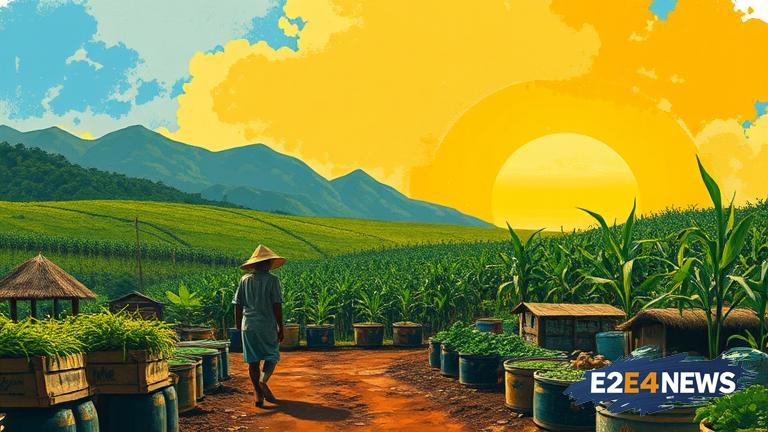Haiti, the poorest country in the Western Hemisphere, has long been plagued by food insecurity and dependence on foreign aid. The country’s agro-industry, which is crucial to its economic development, is at a crossroads, struggling to balance the need for foreign investment and technical assistance with the desire for food sovereignty. Food sovereignty, a concept that emphasizes the right of nations to control their own food systems, is a pressing concern for Haiti, where the majority of the population relies on agriculture for their livelihood. Despite its rich agricultural potential, Haiti imports a significant portion of its food, including rice, beans, and corn, which are staples in the Haitian diet. This dependence on foreign imports has led to a decline in domestic agricultural production, exacerbating poverty and food insecurity in rural areas. Furthermore, the influx of cheap, imported food products has undermined the competitiveness of local farmers, making it difficult for them to sell their produce at competitive prices. To address these challenges, the Haitian government has implemented various initiatives aimed at promoting agricultural development and reducing dependence on foreign aid. These initiatives include the creation of agricultural cooperatives, the provision of technical assistance and training to farmers, and the development of irrigation systems to improve crop yields. Additionally, the government has established programs to support the production and marketing of local food products, such as the ‘Buy Haitian’ campaign, which aims to promote the consumption of domestically produced goods. However, despite these efforts, Haiti’s agro-industry continues to face significant challenges, including limited access to credit, inadequate infrastructure, and a lack of technical expertise. The country’s agricultural sector is also vulnerable to climate change, which has led to droughts, floods, and other extreme weather events that have devastated crops and livestock. To achieve food sovereignty, Haiti must prioritize the development of its agricultural sector, investing in initiatives that promote sustainable agriculture, improve crop yields, and enhance the competitiveness of local farmers. This will require a coordinated effort from the government, private sector, and civil society organizations, as well as significant investment in agricultural research and development. Moreover, Haiti must also address the issue of land tenure, which is a major constraint to agricultural development, as many farmers lack secure access to land, making it difficult for them to invest in their farms. The government must also implement policies to protect the rights of small-scale farmers, who are the backbone of Haiti’s agricultural sector, and ensure that they have access to markets, credit, and other resources. In conclusion, Haiti’s agro-industry is at a critical juncture, and the country must make a concerted effort to achieve food sovereignty, reducing its dependence on foreign aid and promoting sustainable agricultural development. This will require a long-term commitment to investing in the agricultural sector, as well as a coordinated effort from all stakeholders to address the challenges facing the sector. By prioritizing the development of its agricultural sector, Haiti can reduce poverty, improve food security, and achieve sustainable economic development. The country’s agricultural sector has the potential to be a driver of economic growth, but it requires significant investment and support to achieve its full potential. With the right policies and investments in place, Haiti can unlock the potential of its agricultural sector, promoting food sovereignty and reducing dependence on foreign aid. The future of Haiti’s agro-industry depends on the ability of the government, private sector, and civil society organizations to work together to address the challenges facing the sector and promote sustainable agricultural development. By doing so, Haiti can ensure a brighter future for its citizens, one that is characterized by food security, economic prosperity, and sustainable development.
